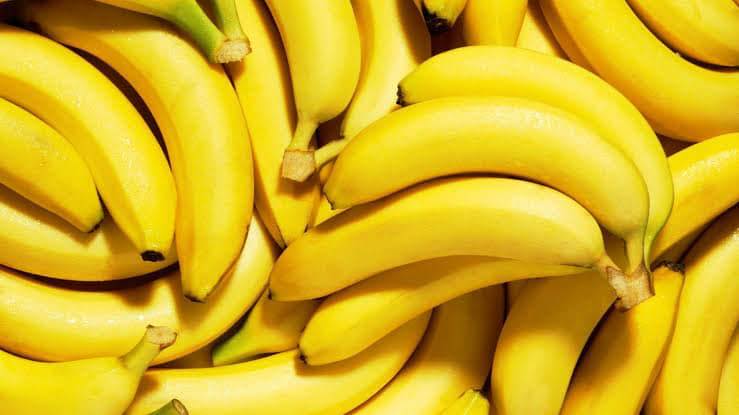What are bananas?
Bananas are listed among the world’s most popular fruits. Native to Southeast Asia, they are now grown in many warm parts of the world. Bananas vary in color, size and shape. The most common type is the Cavendish, which is a type of dessert banana. Green when unripe, it yellows as it matures.
A wide variety of health benefits are associated with the curvy yellow fruit. Bananas are high in potassium and pectin, a form of fiber; they can also be a good way to get magnesium and vitamins C and B6. Bananas are known to reduce swelling, protect against developing Type 2 diabetes, aid in weight loss, strengthen the nervous system and help with the production of white blood cells, all due to the high level of vitamin B6 that bananas contain.
Bananas are also high in antioxidants, which can provide protection from free radicals, which we come into contact with every day, from the sunlight to the lotion you put on your skin.
Stomach Ulcers
Peptic ulcers are open sores that develop on the inside lining of your stomach and the upper portion of your small intestine. The most common symptom of a peptic ulcer is stomach pain.
Peptic ulcers include:
- Gastric ulcers that occur on the inside of the stomach
- Duodenal ulcers that occur on the inside of the upper portion of your small intestine (duodenum)
The most common causes of peptic ulcers are infection with the bacterium Helicobacter pylori (H. pylori) and long-term use of nonsteroidal anti-inflammatory drugs (NSAIDs) such as ibuprofen (Advil, Motrin IB, others) and naproxen sodium (Aleve). Stress and spicy foods do not cause peptic ulcers. However, they can make your symptoms worse.
Symptoms
- Burning stomach pain
- Feeling of fullness, bloating or belching
- Intolerance to fatty foods
- Heartburn
- Nausea
The most common peptic ulcer symptom is burning stomach pain. Stomach acid makes the pain worse, as does having an empty stomach. The pain can often be relieved by eating certain foods that buffer stomach acid or by taking an acid-reducing medication, but then it may come back. The pain may be worse between meals and at night.
Food Changes and Ulcer
Food changes can be important for treating and preventing stomach ulcers. It is important to avoid foods and flavorings that induce the stomach to produce acids. According to Mayo Clinic, peptic ulcers are open sores that develop on the inside lining of your stomach and the upper portion of your small intestine. The most common symptom of a peptic ulcer is stomach pain. Peptic ulcers include; Gastric ulcers that occur on the inside of the stomach and Duodenal ulcers that occur on the inside of the upper portion of your small intestine (duodenum).
According to Harvard Health Publishing, 4 million people in the U.S. develop an ulcer each year. Although ulcers are open sores in the lining of the stomach or the duodenum (first part of the small intestine), they can also be found in the esophagus, reports the American Academy of Family Physicians.
The most common causes of peptic ulcers are infection with the bacterium Helicobacter pylori (H. pylori) and long-term use of nonsteroidal anti-inflammatory drugs (NSAIDs) such as ibuprofen (Brustan N, IBU 400, others) and naproxen sodium (Aleve). Stress and spicy foods do not cause peptic ulcers. However, they can make your symptoms worse.
Is Banana Good For Ulcer Patients?
Studies indicate that both unripe and ripe bananas are very beneficial in aiding stomach ulcer healing. There are certain antibacterial compounds in bananas that inhibit the growth of ulcer-causing H. pylori. Bananas are best to clear out the acidity of gastric juices which lowers the inflammation and strengthens the stomach lining.
According to a Livestrong article, bananas are safe to eat if you have an ulcer and a better choice than acidic citrus fruits such as oranges or grapefruit, that’s according to the American Gastroenterological Association. A small serving of low-acid fruits like bananas about 10 to 15 minutes before a meal helps your stomach prepare for digestion, and can reduce symptoms of indigestion.
According to WebMD, foods that are high in fiber are good for ulcers in two ways. Fiber can lower the amount of acid in your stomach while easing bloating and pain. Research has also shown that a diet rich in fiber may help prevent ulcers. A medium-sized banana has about 3 grams of fiber, making bananas a fairly good fiber source.
Bananas contain two main types of fiber:
- Pectin: Decreases as the banana ripens.
- Resistant starch: Found in unripe bananas.
Resistant starch escapes digestion and ends up in your large intestine, where it becomes food for the beneficial bacteria in your gut. Additionally, some test-tube studies propose that pectin may help protect against colon cancer.
Foods to avoid if you have stomach ulcer
Stomach ulcers are associated with a buildup of acid in the gut. Certain foods and beverages increase acid production and can make stomach ulcers more likely.
For this reason, it may be best to avoid the following items:
- Acidic foods: Some foods are naturally acidic, and, even though they have some health benefits, they are best avoided on a stomach ulcer diet.
- Alcohol: Drinking alcoholic beverages such as beer, wine, and liquor can inflame and irritate the lining of the stomach. Excessive alcohol use is associated withTrusted Source experiencing symptoms of stomach ulcers.
- Fried foods: Foods fried in oil at high temperatures can aggravate stomach ulcers and upset the digestive tract’s natural layer of protection.They can also be high in fat and salt and, if cooked away from the home, might be fried in oil that a kitchen has used several times over. Fried foods include potato chips, fries, onion rings, fried chicken, and donuts.
Other foods have a high dietary acid load, which means that they contribute to an acidic environment in the body.
Some people with stomach ulcers may need to avoid or limit the following foods:
- tomatoes
- citrus fruits, such as lemons, oranges, and grapefruits
- refined carbohydrates, such as white bread, white rice, and processed cereals
- sodas
Highly processed foods
Avoiding high fat, salty, and sugary processed foods may help relieve symptoms in people with stomach ulcers.
People with stomach ulcers often have diets low in fiber and antioxidants. However, choosing high fiber, unprocessed foods can help slow digestion and reduce bile acid concentration, which may help reduce symptoms such as bloating and pain.
SEE: Is Water Melon Good For Ulcer Patients?






